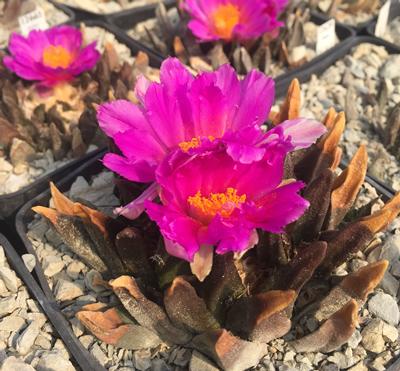Research focused on tackling the illegal trade in endangered plants

New research by Dr Anita Lavorgna, Lecturer in Criminology at the University of Southampton, will aim to tackle the global illegal trade in endangered plants, worth billions each year.
Thanks to a grant from the New Investigators scheme, funded by the Economic and Social Research Council (ESRC), Dr Lavorgna’s ‘FloraGuard’ project will analyse online marketplaces for the illegal plant trade and policing practices to assist law enforcement in detection and investigation. The Royal Botanic Gardens at Kew and the UK Border Force are partners in the research.
Dr Lavorgna’s project will combine innovative and cross-disciplinary ways of analysing online marketplaces for the illegal trade in endangered plants with analyses of existing policing practices to assist law enforcement in the detection and investigation of illegal trades of endangered plants. The project focuses on the UK, which serves as a major transit and destination market for the European region as plants are traded for a range of uses, from their perceived value in traditional medicine to their inclusion in gourmet dining as well as their aesthetic value.
“Over the last 60 years, commerce in exotic wild plants has increased in Western countries,” Dr Lavorgna explains. “Wild plant crimes have long been a focus of concern mainly in conservation science; alongside the legal trade in plants, the profitability of the market has boosted illegal markets.
“In criminology, where the illegal trade in wild animals (and animal parts eg ivory) is receiving increasing attention, the illegal trade in plants has so far been under-investigated,” she continues. “However, wild plant trafficking threatens and destroys numerous species and important natural resources and hinders the rule of law and security as profits are also used to finance other forms of trafficking.
“The Internet has increased the illegal trade in wild plants, facilitating the encounter of supply and demand; no matter how highly-specialised the market in certain wild plants, it is much easier to find potential buyers or sellers online than in the physical world,” Dr Lavorgna adds. “There is consensus that the policing of such a criminal activity is still scarce and poorly resourced. A major challenge is the fact that law enforcement agencies have limited training opportunities and lack of equipment and specific expertise to counter effectively this illegal trade. In this context, the question of how can we best control and prevent this criminal market needs to be addressed.”